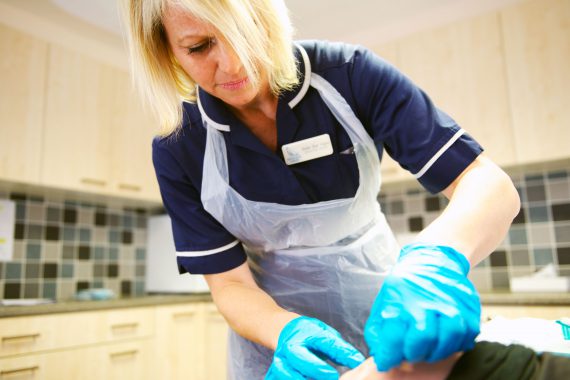The Scottish Government is trialling giving advanced nurse practitioners a significantly more prominent role in providing out-of-hours care as part of £10m worth of investment going into urgent GP care.
It will use the experiences of eight primary care pilot sites next year to determine how to allocate £10 million specifically for out of hours care.
The sites will trial different ways of working, including:
- An ‘urgent care resource hub model’ in Crosshouse Hospital in Kilmarnock, which will see multi-disciplinary teams including GPs, nurses, pharmacists, third sector workers and other professionals.
- NHS Lothian basing a GP in the emergency department at the Royal Hospital for Sick Children at weekends. Its pilot will develop the clinical paediatric skills for out of hours GPs.
- A GP will provide clinical leadership for a multi-disciplinary team delivering community out of hours care in Tayside.
A number of sites will focus on making more use of advanced nurse practitioners.
NHS Greater Glasgow and Clyde will train nurse practitioners for home visits in Glasgow, testing the required levels of clinical support from GPs and monitoring the appropriateness of hospital referrals.
Highland, Fife, Lanarkshire and Grampian are all training or recruiting advanced level nurses for out of hours services to ease the workload of GPs. The nurses will be involved in prescribing and high level assessing and consulting.
The moves are in response to recommendations in the National Review of Primary Care Out of Hours Services by Professor Sir Lewis Ritchie, published in November.
He said services were stretched because of doctor shortages and increased patient demand, and called for a ‘multi-disciplinary and multi-sectorial’ approach to out-of-hours care. Advanced nurse practitioners should make a ‘significant contribution’, said Professor Richie.
Health secretary Shona Robison said: ‘This multi-disciplinary team approach, which moves away from the traditional model of the doctor as the first point of contact for all patient care, will utilise the skills of other highly trained professionals in the NHS, and ensure patients are seen by the person best able to address their needs.’
Pulse October survey
Take our July 2025 survey to potentially win £1.000 worth of tokens













